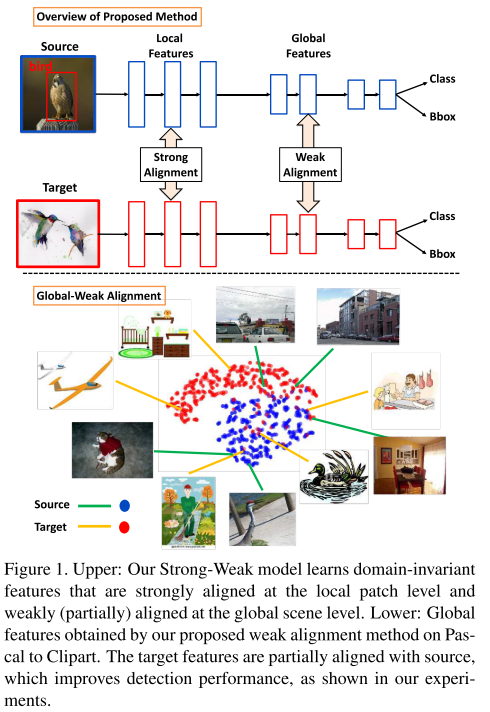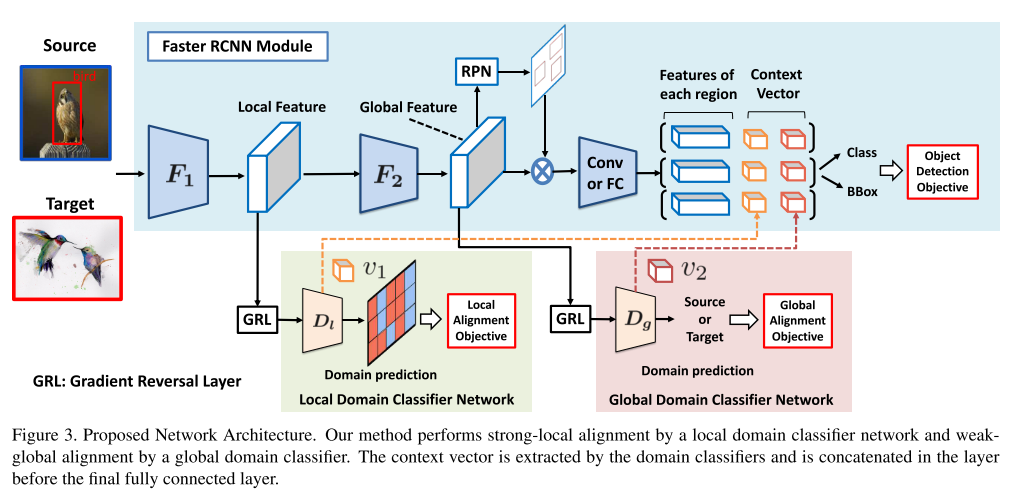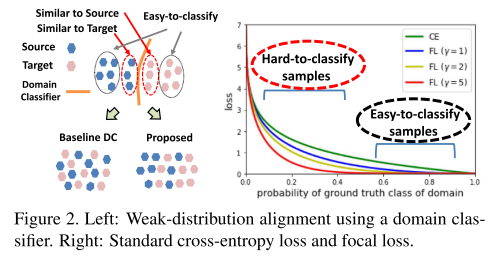问题:Deep convolutional neural networks have greatly improved object recognition accuracy,but remain reliant on large quantities of labeled training data.(深度卷积神经网络依赖大量标注的训练集)
目的:reduce annotation costs associated with detection.(减少目标检测的标注成本)
方法:unsupervised adaptation method for object detection that combines weak global alignment with strong local alignment.
(结合弱全局对准和强局部对准的非监督自适应目标检测模型)

具体做法:We extract global features just before the RPN and local features from lower layers, and perform weak global alignment in the high-level feature space and strong local alignment in the low-level feature space. (在RPN之前提取全局特征,在较低层提取局部特征,在高层特征空间进行弱全局对准操作,在低层特征空间进行强局部对准操作)

Weak Global Feature Alignment:
We propose to train a domain classifier to ignore easy-to-classify examples while focusing on hard-to-classify examples with respect to the classification of the domain.(我们提出训练一个忽略容易分类的样本,而专注于相对于域的分类难分类的样本的域分类器)

Strong Local Feature Alignment:
The architecture of the local domain classifier, Dl, is designed to focus on the local features rather than global features. Dl is a fully-convolutional network with kernel-size equal to one. (局部域分类器专注于局部特征而不是全局特征,局部域分类器是尺寸为1的全卷积网络。)
理解:用一个分类器区分背景和目标。。。
最后
以上就是不安心情最近收集整理的关于(论文阅读)Strong-Weak Distribution Alignment for Adaptive Object Detection的全部内容,更多相关(论文阅读)Strong-Weak内容请搜索靠谱客的其他文章。








发表评论 取消回复